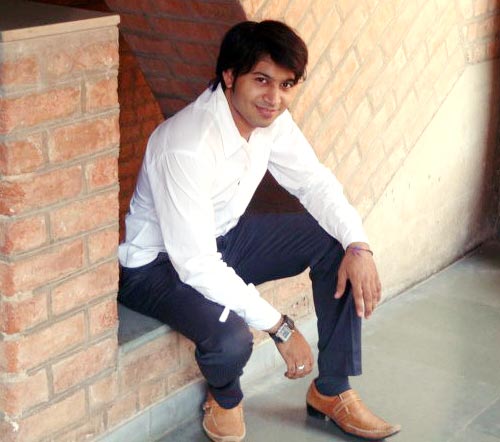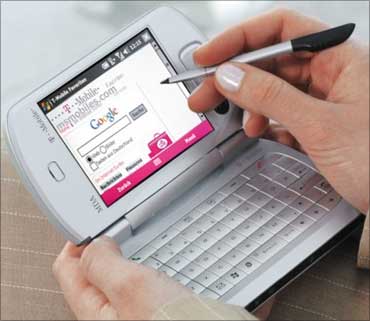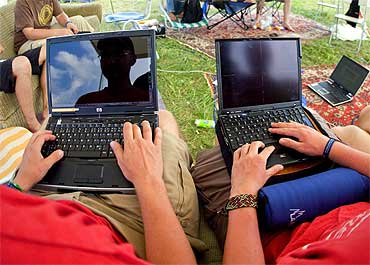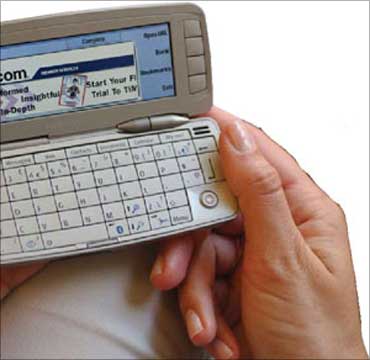Gyancentral.com
Meet Ashish Chowdhary, a student of PGDM in Business Entrepreneurship at the Entrepreneurship Development Institute of India who has co-developed the CATapp, a unique mobile application that will help students prepare better for the Common Admission Test (CAT).
While most parents are discontent about their children spending too much time with their cell phones, young entrepreneur Ashish Chowdhary comes up with a mobile app which makes parents encourage their children to spend more time with their cell phones.
Titled CATapp, the application, which is currently available free for download to students aims to add muscle to their Common Admission Test (CAT) preparation. In this interview, Ashish discusses the potential of his ambitious venture. Read on.
Give us a brief about you and your partners?
I am a graduate in B.E. in Information Technology from Dharmsinh Desai University (DDU), Nadiad, Gujarat. As part of my campus recruitment, I was chosen to work with Tata Consultancy Services (TCS).
After an amazing 1.5 year stint with TCS, New Delhi, the entrepreneurial bug had bitten me. I quit the job and started looking for some opportunity to prove myself. I came across a very unique course offered by Entrepreneurship Development Institute of India (EDII) and joined it.
Currently, I am pursuing PGDM in Business Entrepreneurship and planning to go into Mobile Apps Development in Education, Entertainment, Banking and Health sector.
My partner has been my colleague at DDU. He is currently working with Patni Computers.
How did you all meet each other and come up with this idea?
After leaving TCS, I was looking for something that I loved to do and would be helpful to people. I did a SWOT analysis on myself and realised that my strengths lay in mathematics and providing education that requires only logic and no cramming; that there are opportunities in mobile education or mobile learning.
While I was preparing for CAT, I used to commute daily. I spent a lot of time in travelling and I hated the idea of carrying too many books in my bag.
I only used to carry very light weight books on puzzles and tried to improve my logical skills.
Mobile apps were still at a very nascent stage in India then. I searched for mobile apps for MBA students and I found zilch. Also, I saw that many students, including me, were wasting their time in preparing for CAT using irrelevant materials and ignoring the original CAT papers – the only authentic source to know what skills are tested at CAT.
And I connected all these dots -- my strengths, opportunities in mobile learning, wasting time in travelling, no mobile apps for MBA students and preparing for CAT using original CAT papers and conceived the idea of CATapp.
I consulted many people about this and the response was good enough for me to get started. I prepared the entire answer bank and designed the layout of the app whereas my partner developed the app.
'I saw that people found it difficult to carry 5-10 kgs of books'
I am a great admirer of Steve Jobs.
He once said, "We are here to make a dent in the universe. Or else why even be here?" And this thought has left an indelible impression on me.
I have always tried to do something different, something where my limits of what I can do are challenged and something which can solve the problems that people are facing. I also knew that it is impossible to satisfy everyone.
I saw people wasting their time in travelling. I saw that people found it difficult to carry 5-10 kgs of books every day for their CAT preparation.
Bookstores and libraries like Crossword and British Library don't allow you to carry your own books. And there was only one thing which had no restrictions -- either to carry or use. And that was the mobile phone. So I thought of developing this application on the mobile.
I wanted to be the first person to bring such an app to the market and make people realise the importance of solving original CAT papers.
How viable is your product for the market?
I researched a lot about such apps in the market. I tried whatever I could get my hands on. I found nothing -- not even near to what I wanted to develop. Developing mobile apps is always a challenging task mainly because:
There are many platforms available (iOS, Android, JAVA, BADA, Blackberry, etc.) and developing apps for all is a costly affair.
'Students in India using Internet on their mobile phones are still limited'
Photographs: Hannibal Hanschke/Reuters
Individually, through apps market, through tie-ups, etc.? Size is a very big constraint. Students in India using Internet on their mobile phones are still limited.
The app is available for free for all CAT aspirants. Internet is not required to use this app. Once it is downloaded, one can use the app anytime, anywhere. Only original CAT papers can tell you the real level of CAT exam.
I don't want CAT aspirants to waste their time preparing for everything they come across for CAT exam. Just like writing CAT requires logic, even preparing for CAT requires logic. CAT is no more a speed based test but a logic based test.
There is a Chinese proverb, "Give a man a fish and you feed him for a day. Teach a man to fish and you feed him for a lifetime". With CATapp, we just want the students to understand what CAT is all about so that they can save a lot of money that they spend in coaching institutes.
Students can register for a free copy of CAT app at http://bit.ly/nLwITl or www.catapp.in.
'Mobile computing is where India is still to make a dent'
Photographs: Reuters
What is the future road-map?
The response so far has been good. There were almost 200 registrations prior to the launch of CATapp.
I want CATapp to be used by almost 50 percent of the CAT aspirants, keeping in mind the platform that we have developed this app on (JAVA/Symbian). There is one more app in the offing -- GK app for MBA students.
My aim is to bring the entire classroom experience of MBA teaching on mobile. With another friend and a colleague at EDII, I have designed a course wherein we teach high-school students about practical aspects of education and its importance.
We cover topics like innovation, creativity, self-confidence, team building, making money, etc. We believe "only theories without practical are useless and only practical without theories are a waste of time".
I want something of this sort to be inculcated in MBA coaching so that students are actually fit for MBA education. We are still building our team and once we have a really enthusiastic team, we will plunge into this.
Lastly, what is the future of Road for mobile computing in India?
Mobile computing is now a big business in India. Ahmedabad is fast emerging as the mobile capital of India. There are really great startups that are focusing on all kinds of mobile apps.
With mobile banking, m-commerce and all sorts of apps coming on mobile phones, the future looks great. We still don't want to be just application developers; we want to create history by providing something the world hasn't thought of yet.
India has always been at the forefront when it comes to making low-cost things. Aakash, world's cheapest tablet, is the latest example. India is not only recognised but also respected in the IT sector. And mobile computing is where India is still to make a dent.





Comment
article